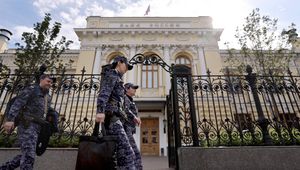Bernard Arnault, the billionaire head of LVMH and the richest person in France, took the witness stand on November 28, 2024, at the Paris trial of former French spy chief, Bernard Squarcini. The proceedings have not only captured the attention of the media but also raised significant questions about the intertwining of private enterprise and state security. Squarcini is facing charges related to influence peddling and misusing his position to provide confidential information to Arnault during his tenure as the head of France's domestic intelligence agency from 2008 to 2012.
This high-profile case shines a light on the practices of LVMH, particularly concerning its reputation management and legal battles against counterfeiting. According to the charges, Squarcini allegedly leveraged his extensive connections to benefit LVMH, particularly by gathering sensitive information about individuals and spying on activist groups.
During the trial, Arnault maintained his innocence, asserting, "I would like to point out I am here as a witness, a simple witness, and my indictment was never considered by the investigating magistrates." He emphasized his lack of knowledge about the alleged surveillance activities carried out by Squarcini, maintaining he had no awareness of any scheme to protect the luxury goods group using illegal means.
Arnault's connections to Squarcini date back to when the latter transitioned from public service to consulting for LVMH. The luxury conglomerate reportedly paid Squarcini's consulting firm approximately 2.2 million euros for various services, including analyzing individuals suspected of counterfeiting LVMH products. Among those targeted was François Ruffin, a politician and activist known for his work against corporate influence and exploitation, who also created the award-winning documentary "Merci Patron!" aimed at criticizing LVMH's business practices.
Over the span of two weeks, this trial has elevated Arnault to heightened scrutiny during challenging periods for both him and LVMH. Despite the company's $158.6 billion valuation, the luxury sector is experiencing economic pressures, and the reshuffling of LVMH's top management only adds to the uncertainty surrounding its future.
Initially, Arnault faced intense media scrutiny due to the criminal probe involving LVMH, leading to concerns about the company's reputation. To mitigate these risks, LVMH opted to settle the case out of court, agreeing to pay 10 million euros, which Arnault described as necessary for avoiding unprecedented media backlash. He defended this decision, stating it was proposed by the magistrates and not a recognition of wrongdoing by the group.
Squarcini's actions are under investigation, including allegations about his involvement with DCRI officers attempting to root out blackmailers targeting Arnault. He is charged with multiple offenses, including leaking confidential information, obstructing justice, and peddling influence, resulting from his operations both as head of the DCRI and following his consultancy role with LVMH.
Arnault has firmly rejected any wrongdoing on his part, asserting he never authorized any unlawful activities carried out under Squarcini's aegis. The CEO also emphasized the company’s positive contributions, stating, "Our group pays 8 billion euros to the state every year in taxes and recruits extensively within France." He regards the accusations from Ruffin as attempts to exploit the trial for his own benefit, both politically and commercially.
The trial reflects broader concerns about corporate governance, civil liberties, and the extent to which private entities might utilize state mechanisms for personal or corporate gain. It raises the question: where should the lines be drawn between corporate interests and state duties? With Arnault and LVMH unwilling to accept blame, the legal proceedings serve not just to illuminate possible breaches of law but also to test the foundations of ethical business practices within the luxury sector.
While LVMH’s legal challenges may eventually settle, the fallout from this trial could reshape public perceptions of the luxury industry and set precedents for how high-profile corporations engage with national security infrastructures.



